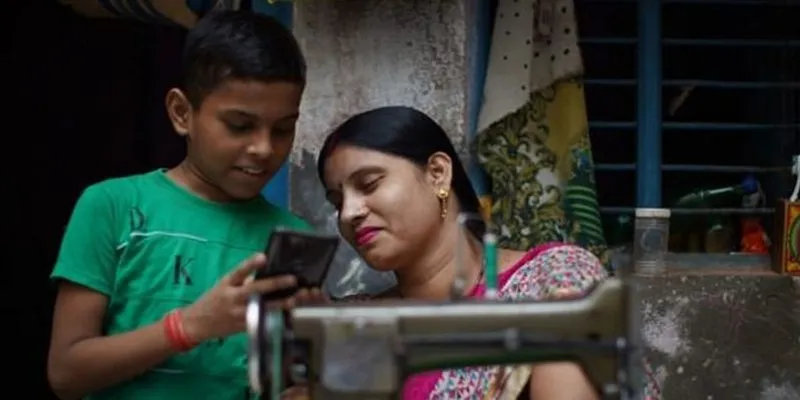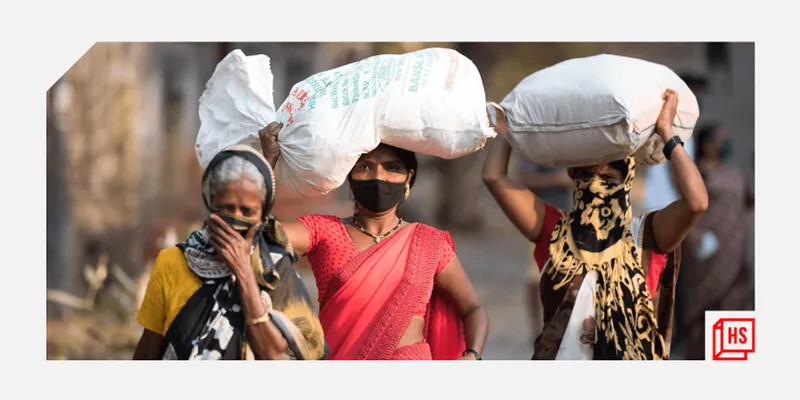[Year in Review 2021] From tech hiring frenzy to struggles in informal sector, here are the best reads of the year
In 2021, we saw individuals and businesses continue to battle the pandemic. There was a frenzy in finding the best tech talent, meteoric rise in unicorns and IPOs, and more.
We did it! It's been almost two years since the outbreak of the coronavirus pandemic and we made it… past a stinging first wave, beyond a numbing second wave, and now, on the threshold of a new variant, still daring enough to hope for the best.
But, as we look back at 2021, there is so much to be thankful for. We started the year with India rolling out the world’s largest vaccination drive on January 16, 2021, delivering the first dose to around 300 million people.
In the business world, the pandemic crisis sparked a wave of innovation across sectors, unleashing a new confidence and accelerating the use of technology, digitisation, and bringing forward the future of work — and how.
For startups, 2021 has been a stellar year. We saw 44 startups entering the unicorn club, while many also went public, launching a string of successful IPOs (initial public offerings). In fact, Indian companies across sizes raised Rs 1.10 lakh crore ($14.88 billion) over 52 issues until end-November.
At YourStory, as we witnessed the good, bad, and ugly in all the sectors, and it was heartening to see that our top stories this year brought forward a mixed bag of emotions. And, as we wrap up 2021, here’s a quick recap of the same.

Inside India’s startup hiring frenzy: A tale of premium salaries, bidding wars, dropouts, and desperation
The pandemic-led acceleration in digitisation, coupled with the convenience of remote working, opened up the job market to the world. Borderless hiring is becoming a reality with international tech companies, from Silicon Valley to Southeast Asia, dipping into the same talent pool of Indian engineers as homegrown startups are.
And, as a Twitter user summed it up, “In an era of financial capital, human capital will determine the success of businesses.”

One year of lockdown: Most low-income Indian households got their first phones for ‘padhai’, edtech startups say
From reckless pay packages and extravagant perks, we move on to a new world order - a transitional year that shattered myths and lent respectability to online learning. Never in 100 years had education been threatened the way it was in 2020.
It could have meant only two things: a) everything comes to a standstill; or b) things go through a sea change and an all-new world order in learning is created. As it turned out, the latter happened, when 2020 saw the mainstreaming of online education.
But, for online education to fly, you need access to technology. Most of India didn’t... until the pandemic changed things for several households.

A day with Bhavish Aggarwal at Ola Electric's new facility, the world's largest factory for two-wheelers
Every Friday is a busy day for Bhavish Aggarwal, Co-founder and Group CEO, . Starting early at 6 am from Bengaluru, Bhavish drives close to 140 km to Sipcot in Krishnagiri District, Tamil Nadu, to visit the construction of Ola’s fully automated EV factory.
“We have tight schedules and timelines, considering we want to start with two million units from June this year,” says Bhavish. The 500 acre land will be an integrated manufacturing space for battery, welding, general assembly, paint shop, motor, finished goods, and test track supplier park.
Taking a walk through some parts of the land, Bhavish tells YourStory Media that the work on the land is happening 24X7, and each segment is being built simultaneously.

Falguni Nayar, Founder, Nykaa
Why the Nykaa IPO, which made Falguni Nayar India's richest self-made woman, is a step in the right direction
“I started Nykaaat the age of 50 with no experience. I hope the journey can inspire each of you to be the Nykaa of your lives,” said Falguni Nayar, Founder of Nykaa, the online beauty care marketplace, as its parent company, FSN E-Commerce Ventures, debuted on Indian bourses with 80 percent gain.
Nykaa opened at Rs 2,018 — a gain of 80 percent against the issue price of Rs 1,125 — with a market cap of Rs 1 lakh crore ($13.5 billion). The company’s shares opened at Rs 2,001 on BSE and ended at Rs 2,208. The company’s market cap touched over Rs 1 lakh crore.

Two years since the COVID-19 outbreak, Indian women in the informal sector continue to pay a heavy price
When the coronavirus outbreak led to an overnight nationwide lockdown in 2020, thousands of migrants from metros across India left for their homes on foot, sometimes with no food or money left.
In rural Uttarakhand, when these migrants returned home, women of the households were urged by medical personnel to get tested for coronavirus, considering they were primary contacts.
However, testing the families, especially the women, was not an easy task. Besides the fact that they did not have the means to stay quarantined, women in rural areas – mostly earning a livelihood as agricultural labourers – were worried their work and earnings would suffer if the results came out positive and required them to be isolated for over two weeks.

Investor interest in Indian spacetech startups takes off. Here’s why
The Indian spacetech startup sector has long been regarded with caution by the investment community. But now, no longer.
Investors are now eyeing the space as a viable investment — thanks to a number of factors, including the Indian government’s move to open up the spacetech sector to include private players, as well as lower costs to make and launch satellites, proof of returns on investments, clear market demand for geospatial data, and technological advancements in the space.

Playing to win: Online gaming goes mainstream, India to have 657M gamers by FY25
India became the world’s second-largest casual gaming market during the pandemic. Riding on successes like Ludo King and Teen Patti, and the emergence of local gaming studios, online gaming revenues reached Rs 136 billion in FY21.
While the number of gamers had been growing steadily since 2016 riding on the 4G data revolution, the pandemic resulted in online gaming emerging as a mainstream entertainment option in the country.

Impostor syndrome: Why women leaders often fail to reap the benefits of their success
In psychological terms, impostor syndrome is defined as the persistent inability to believe that one's success is deserved or has been legitimately achieved as a result of one's own efforts or skills.
And, data says it affects more women than men.
Even global business leaders like Facebook COO Sheryl Sandberg, former First Lady of the United States Michelle Obama, and several other women leaders have spoken about being a victim of impostor syndrome.

Can MSMEs and small businesses survive a potential third wave?
India’s MSME industry is the largest in the world, next only to China. And its sheer size dictates that its challenges are multi-faceted.
There has been a concerted effort by most MSMEs to go digital both in terms of internal functioning and external market environment. However, due to factors like lack of resources, finances, and easy access to quality service providers, most MSMEs are still in the process of transformation.

The breathless hunt for a lost darshini, has COVID-19 devoured it?
A recent Dun and Bradstreet survey indicates that more than 82 percent of small businesses have been negatively impacted by COVID and that 70 percent of them expect that it will take almost a year for the demand to come back.
Last year amidst COVID-19, the government had launched the Udyam registration portal, its new portal for MSME registration. As of May 16, 2021, 30 lakh MSMEs have been registered on the portal. Interestingly, about 28 lakh registered enterprises were micro-units, 1.78 lakh small enterprises, and 24,657 mid-sized enterprises.
Digital transformation has long been coming, but with COVID-19 here to stay, the time to make the positive shift towards digital adoption is now.
Edited by Saheli Sen Gupta


![[Year in Review 2021] From tech hiring frenzy to struggles in informal sector, here are the best reads of the year](https://images.yourstory.com/cs/2/721b1c100eb911eb936a1114ea00a5c0/best-reads-1640709354649.png?mode=crop&crop=faces&ar=2%3A1&format=auto&w=1920&q=75)




